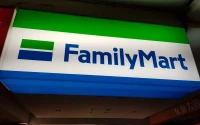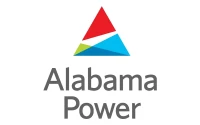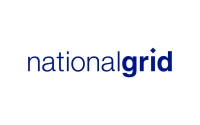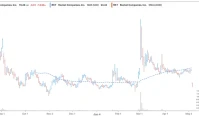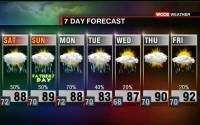A Poison Pill for Public Service
We build systems with intent. In engineering, in code, in society, we design structures to produce a desired outcome. The Public Service Loan Forgiveness (PSLF) program was a brilliant piece of social engineering, born from a simple, elegant idea: incentivize our best and brightest to pour their talents not into the jobs that pay the most, but into the ones that matter most. It was a contract. Ten years of your life dedicated to teaching, nursing, public defense, or nonprofit work, and we, as a society, will help unburden you from the crushing weight of student debt. It was a system designed to build a better, more equitable world.
And now, that system is being deliberately corrupted.
When I first read the details of the new regulations finalized by the Trump administration (a New Trump rule bars student loan relief for public workers tied to ‘illegal’ activity), I honestly felt a chill. This isn't a tweak or a minor policy adjustment. This is the equivalent of inserting a virus into a city’s water supply. The new rules give the Education Department the power to disqualify entire organizations from PSLF if their work is deemed to have a “substantial illegal purpose”—a term so dangerously vague it’s practically an invitation for abuse. In plain English, it means the Secretary of Education, a political appointee, gets to act as a moral arbiter, deciding which forms of public service are "worthy" and which are not.
The targets are explicit: nonprofits that work with undocumented immigrants or provide gender-affirming care for minors. The administration claims this is about preventing taxpayer money from subsidizing "lawbreakers." But let’s be clear about what’s happening. This is the weaponization of bureaucracy. It’s using the intricate, often opaque machinery of government to enforce an ideological agenda, turning a program meant to foster public good into a tool for political retribution.
The Chilling Effect of Ideological Code
The mechanism for this is insidious. The Secretary can disqualify an employer based on a court ruling, a legal settlement, or even their own independent judgment using a "preponderance of the evidence" standard. Think about that. A nonprofit in one of the 27 states that have outlawed certain forms of gender-affirming care could be blacklisted nationwide, and every single one of its employees—from the doctors to the receptionists—could see their ten-year path to loan forgiveness evaporate overnight.
This isn't just a rule change; it's a fundamental rewriting of the system's source code. The original code was designed to ask one question: "Are you serving the public?" The new code asks, "Are you serving the public in a way we politically approve of?" It’s a change that creates a chilling effect that will ripple through our entire society—it means a young, brilliant lawyer might now think twice before becoming a public defender, a passionate doctor might avoid working in a rural clinic that serves immigrant populations, and a dedicated social worker might abandon the nonprofit sector entirely.

Imagine the scene: a young public defender, buried under a mountain of case files in a cramped, fluorescent-lit office, has spent eight years fighting for people who can't afford representation. They’ve been counting on PSLF to make their career choice viable. Now, they have to wonder if their employer, by providing legal aid to an undocumented person, will be flagged by a bureaucrat in Washington D.C. The weight of their clients' futures is already immense; now we're adding the weight of their own financial ruin. What kind of society does that? What happens to the principle of "justice for all" when we actively punish the very people who uphold it?
This is the kind of shortsighted, destructive thinking that dismantles the very structures we need to solve our biggest problems. The American Bar Association warns this could gut the ranks of public interest law, leaving the most vulnerable without a voice. This isn't a hypothetical risk; it's the predictable outcome of a system deliberately designed to create fear and uncertainty. We're talking about a policy that could hollow out the institutions that form the backbone of a compassionate society, and for what? To score political points.
A System Designed to Break
This move is more than just a bad policy; it's a profound betrayal of a promise. It's a perversion of a system that was supposed to be a beacon. The PSLF was our society’s way of saying, "Your work has value beyond a paycheck." Now, the message is, "Your work has value only if it aligns with our ideology."
This is the kind of thinking that reminds me of the loyalty oaths of darker times in our history, where public service was contingent not on competence or dedication, but on political conformity. It creates a caste system of service: the "clean" and the "unclean," the "approved" and the "unapproved." But that’s not how public service works. You don’t get to pick and choose which public you serve. A firefighter saves everyone in a burning building, not just the people they voted for. A teacher educates every child in their classroom. That is the ethos this new rule seeks to destroy.
It’s an astonishingly cynical move, one that estimates that "fewer than 10" organizations might be barred per year. This isn't about numbers; it's about the precedent. It's about establishing the principle that a government benefit can be withdrawn based on the political winds. Once that principle is established, who’s to say where it stops? What happens when a future administration decides that organizations advocating for gun rights or religious freedom are now the ones with a "substantial illegal purpose"? The National Council of Nonprofits rightly pointed out that this opens the door for any administration to weaponize these rules, a central concern as Trump moves to block public servants from loan forgiveness based on ideology.
This isn't about protecting taxpayers. It’s about control. It’s about making it harder for people to do difficult, necessary work that the administration finds politically inconvenient. It's a system designed not to function, but to break the spirit of those who believe in a life of service. And in doing so, it breaks something essential within our own society.
This Isn't Policy, It's a Purity Test
Let's drop the pretense. This regulation has nothing to do with fiscal responsibility or upholding the law. It is a calculated, ideological attack on the very concept of public service. It transforms a program of encouragement into an instrument of fear, forcing doctors, lawyers, and social workers to look over their shoulders, wondering if their dedication to helping the vulnerable will cost them their financial future. This isn't just bad governance; it's a moral failure that poisons the well for an entire generation of people who simply want to make the world a better place.
